Floyd Abrams
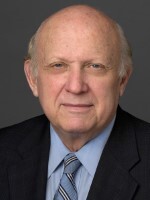
Floyd Abrams is senior counsel at Cahill Gordon & Reindel LLP, and has been a Visiting Lecturer at Yale Law School and a Lecturer in Law at Columbia Law School. He is the author of three books about the First Amendment of which the most recent was The Soul of the First Amendment (2017). Abrams has argued numerous cases involving the First Amendment in the Supreme Court and lower courts. Among others, he was co-counsel to the New York Times in the Pentagon Papers case, counsel to the Brooklyn Museum in its litigation against New York City Mayor Rudolph Giuliani, and counsel to Senator Mitch McConnell in the Citizens United case. Former Yale Law School Dean Robert Post has observed that "no lawyer has exercised a greater influence on the development of First Amendment jurisprudence in the last four decades."
Tabatha Abu El-Haj
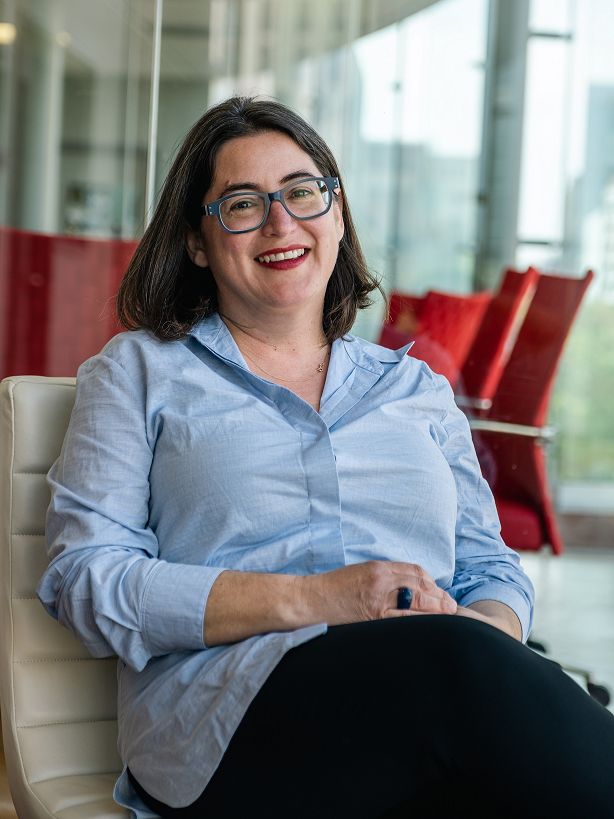
Tabatha Abu El-Haj is a Professor of Law at Drexel University’s Kline School of Law and a First Amendment scholar whose work focuses on the rights of assembly and association. Her work on assembly includes “The Neglected Right of Assembly,” which appeared in the UCLA Law Review in 2009. She is currently co-editing an Oxford Handbook of Peaceful Assembly (forthcoming 2024), for which she has written a chapter entitled Assembly as Political Practice. Professor Abu El-Haj received her J.D./PhD from New York University and clerked for the Honorable Harry T. Edwards of the U.S. Court of Appeals for the D.C. Circuit. She is a regular contributor to the Election Law Blog.
RonNell Andersen Jones

RonNell Andersen Jones is a University Distinguished Professor and the Lee E. Teitelbaum Chair in Law at the University of Utah. She is an Affiliated Fellow at Yale Law School’s Information Society Project. For the 2023-24 academic year, she was a Senior Visiting Research Fellow at the Knight First Amendment Institute at Columbia University.A former newspaper reporter and editor, Professor Andersen Jones is a First Amendment scholar who researches and writes on legal issues affecting the press and on the intersection between media and the courts, with an emphasis on the United States Supreme Court. Her work is particularly concerned with the role of the press in American democracy and the underdeveloped doctrines for identifying and safeguarding constitutionally protectable press functions in a changing media and political landscape. She is a widely cited national expert on newsgathering rights and a regular public commentator on press freedom issues. Her scholarly work on press access, the constitutional protections in media defamation suits, and the role of the press as a check on government has appeared in dozens of books and journals, including Northwestern Law Review, Michigan Law Review, UCLA Law Review, Minnesota Law Review, and the Harvard Law Review Forum.
Abdi Aidid

Abdi Aidid is a Visiting Associate Professor of Law at Yale Law School and an Assistant Professor at University of Toronto Faculty of Law. He researches and teaches in the areas of privacy, law & technology and civil adjudication.
He received his B.A. from the University of Toronto, his J.D. from Yale Law School, and his LL.M from the University of Toronto. Aidid was previously a litigator at Covington & Burling LLP in New York and Davies Ward Phillips & Vineberg LLP in Toronto, and most recently served as the VP, Legal Research at Blue J, where he oversaw the development of machine learning-enabled research and analytics tools.
His book The Legal Singularity: How Artificial Intelligence Can Make the Law Radically Better (with Benjamin Alarie) was published in 2023. His scholarship has appeared in or will appear in University of Toronto Law Journal, the Georgetown Journal of Legal Ethics, the Fordham Law Review, the Journal of Law & Equality, and other journals.
Chinmayi Arun
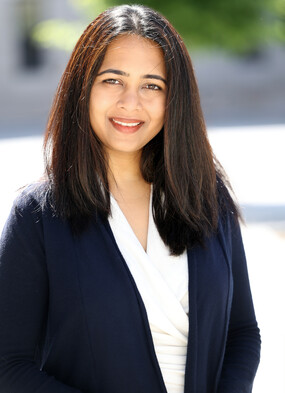
Chinmayi Arun is the Executive Director of the Information Society Project and a Research Scholar at Yale Law School. Her research focuses on platform governance, social media, algorithmic decision-making, the data economy and privacy, within the larger universe of questions raised by law’s relationship with the information society. She is interested in how these questions affect marginalized populations, especially in the Majority World.
Before arriving at Yale, Arun was Assistant Professor of Law at two of the most highly regarded law schools in India. During that time, she also founded and led the Centre for Communication Governance at National Law University Delhi. Arun has served as a Human Rights Officer (temporary appointment) at the United Nations, where she worked on questions of privacy, online speech and artificial intelligence, as well as on advisory committees of international bodies like UNESCO and UN Global Pulse. She has also advised governmental entities and served on the boards of non-profit entities.
Christopher Bavitz
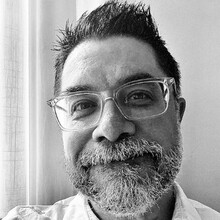
Christopher T. Bavitz is the WilmerHale Clinical Professor of Law and Vice Dean for Experiential and Clinical Education at Harvard Law School. He is also Managing Director of HLS’s Cyberlaw Clinic nad a faculty co-director of Harvard’s Berkman Klein Center for Internet & Society. Chris oversees many of the Cyberlaw Clinic’s projects relating to copyright, speech, advising of startups, and the use of technology to support access to justice, and he serves as the HLS Dean’s Designate to Harvard’s Innovation Lab. Chris’s research and related work at the Berkman Klein Center addresses intermediary liability and online content takedown regimes as well as regulatory, ethical, and governance issues associated with algorithms, machine learning, and artificial intelligence. Prior to joining the Clinic in 2008, Chris served as Senior Director of Legal Affairs for EMI Music North America. From 1998-2002, Chris was a litigation associate at Sonnenschein Nath & Rosenthal and RubinBaum LLP / Rubin Baum Levin Constant & Friedman, where he focused on copyright and trademark matters. Chris received his B.A., cum laude, and Certificate in Peace and Justice Studies from Tufts University in 1995 and his J.D. from University of Michigan Law School in 1998.
Jennifer Borg
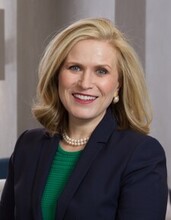
Jennifer Borg is a Clinical Lecturer in Law and Senior Research Scholar in Law at Yale Law School and Of Counsel at Pashman Stein Walder Hayden in Hackensack, New Jersey. Her practice areas include media law and litigation. Formerly, she was General Counsel, Vice President, and Corporate Secretary of North Jersey Media Group Inc, which published more than 50 newspapers and magazines. As head of the legal department there, Borg handled all First Amendment issues and right-of-access claims, as well as all the company's litigation and transactional matters. In 2014, she successfully litigated many cases under New Jersey's Open Public Records Act, helping Bergen County’s daily newspaper The Record in its award-winning breaking news coverage of “Bridgegate.” Borg was also involved in major copyright issues, such as the licensing of the iconic photograph taken by The Record’s Thomas E. Franklin showing three firefighters raising an American flag at Ground Zero. Borg is President of the Foundation of Northern New Jersey f/k/a North Jersey Media Group Foundation, which she founded in 2002 to assist those who suffered losses as a result of the events of September 11.
Bruce Brown

Bruce D. Brown is the executive director of the Reporters Committee for Freedom of the Press and a former journalist and partner in the Washington office of Baker & Hostetler. Prior to joining the firm, Brown worked as a federal court reporter for Legal Times and as a newsroom assistant to David Broder at the Washington Post. He received a J.D. from Yale Law School, a Master’s in English Literature from Harvard University, where he was a Mellon Fellow in the Humanities, and a Bachelor’s degree in English Literature from Stanford University.
Paula Knudsen Burke
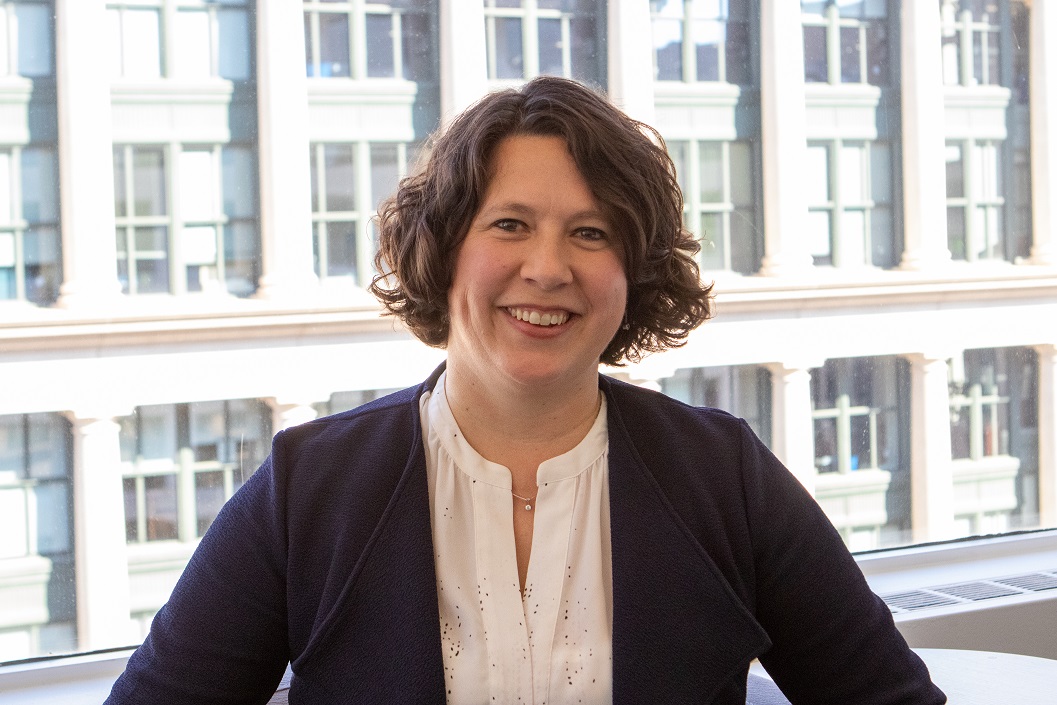
Paula Knudsen Burke is a Local Legal Initiative staff attorney of the Reporters Committee for Freedom of the Press based in Pennsylvania. A licensed Pennsylvania attorney for two decades, Knudsen Burke has worked in both the legal and media fields. In 2017, she helped launch The Caucus, a watchdog publication covering state government and politics. She also led the investigations and enterprise team as an editor at LNP Media Group, Inc., the publisher of The Caucus. Before joining The Caucus, Knudsen Burke was the director of government affairs at the Pennsylvania NewsMedia Association, where she worked on legislative issues impacting print and digital news outlets in the state, including advocating for improvements to the state’s Right to Know Law and Sunshine Act. She has also worked in private practice and nonprofit law, starting her career as an Equal Justice Works Fellow. Knudsen Burke is a graduate of the Dickinson School of Law of the Pennsylvania State University. She also received her undergraduate degrees from the Pennsylvania State University, in both journalism and Spanish. She is a member of the Pennsylvania Bar Association’s Bar/Press Committee and the Pennsylvania Freedom of Information Coalition.
Ben Camacho
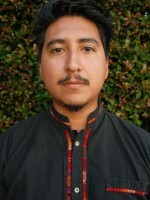
Ben Camacho is a freelance documentary photographer and investigative journalist at Knock LA. His work focuses on state-sponsored violence and the communities impacted by it. In 2018 and '19, he documented the asylum seekers at the US/MX border as an independent journalist. He curated "No Country May Claim Us", a photography exhibit at Golden Gate University School of Law which shared stories about seeking asylum as a person of color. He chairs the legal committee at IWW's Freelance Journalists Union, where he organizes to provide legal support to journalists across the country. He co-founded West Side Storytellers, a documentary production team. He enjoys street photography, shows and breathing clean air. May or may not possess a flash drive with 9,310 photos on it.
Kevin De Liban
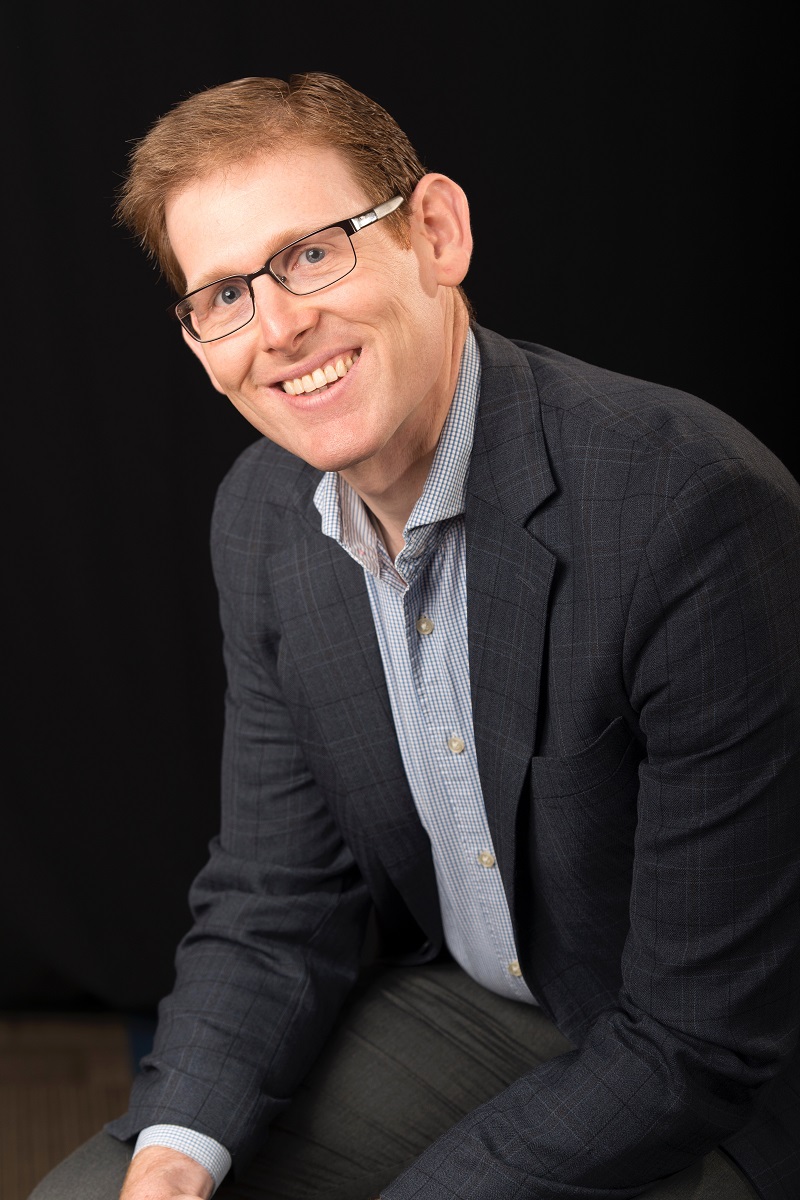
Kevin De Liban is the Founder of TechTonic Justice, a newly launched nonprofit to fight alongside low-income people harmed by AI. Through multidimensional advocacy, TechTonic Justice supports marginalized communities and their advocates to secure the work, housing, schooling, public benefits, and family stability needed for a thriving life. De Liban previously worked for 12 years at Legal Aid of Arkansas—most recently as its Director of Advocacy--where he represented over 1,800 low-income people in matters involving health care, workers' rights, public benefits, special education, and domestic violence. There, De Liban led campaigns at the cutting edge of anti-poverty advocacy: ending the state’s use of algorithms that cut the in-home care of disabled people, stopping Medicaid work reporting requirements that stripped health insurance from 18,000 people, and overcoming qualified immunity to hold state officials personally liable for violating constitutional rights. De Liban regularly presents about imposing accountability on AI and consults with advocates, policymakers, and journalists in the U.S. and abroad. His work has appeared on or in the PBS Newshour, the Washington Post, the Wall Street Journal, MSNBC, the Economist, the Verge, and elsewhere. When not working, De Liban is enjoying the world with his wife and baby or rapping.
Renée DiResta
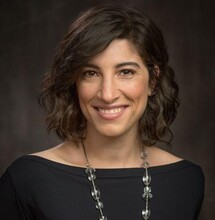
Renée DiResta is the former research manager at the Stanford Internet Observatory. She studies the many ways that people attempt to manipulate, harass, or target others online. Prior to joining Stanford Internet Observatory, her career spanned a few industries: tech startups, venture capital, and quantitative finance. DiResta has degrees in Computer Science and Political Science from the Honors College at SUNY Stony Brook. She is 2019-2020 Emerson Fellow; 2018-2019 Mozilla Fellow; 2017 Presidential Leadership Scholar; Council on Foreign Relations term member; and Truman National Security Fellow. She has held affiliations with the Harvard Berkman-Klein Center and the Columbia University Data Science Institute. I am a Founding Advisor to the Center for Humane Technology, and appeared in The Social Dilemma. She is the author of Invisible Rulers: The People Who Turn Lies Into Reality.
Vera Eidelman
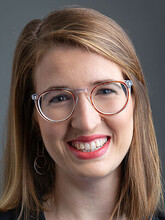
Vera Eidelman is a staff attorney with the ACLU’s Speech, Privacy, and Technology Project, where she works on the rights to free speech and privacy in the digital age. She focuses on the free speech rights of protesters and young people, online speech, and genetic privacy. Notable cases Vera has worked on include Dakota Rural Action v. Noem, a constitutional challenge to “riot boosting” laws that chilled protest in South Dakota, and ACLU v. Clearview AI, a state privacy law challenge to nonconsensual faceprinting, including on behalf of clients who want to speak and associate anonymously. She has successfully argued in trial and appellate courts at the state and federal levels, and has also joined teams representing clients, including a racial justice protester, in Mckesson v. Doe, and a high school cheerleader, in Mahanoy Area School District v. B.L., before the Supreme Court in First Amendment cases. Eidelman was previously a William J. Brennan fellow with the ACLU, and is a graduate of Stanford University and Yale Law School. Before joining the ACLU, she served as a law clerk to the Hon. Beth Labson Freeman of the U.S. District Court for the Northern District of California. While at Yale, she was a proud member of the MFIA clinic..
Andrew Geronimo
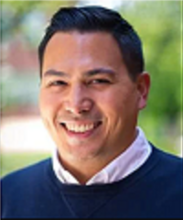
Andrew Geronimo is the Director of the First Amendment Clinic within the Milton and Charlotte Kramer Law Clinic Center at Case Western Reserve University School of Law. His teaching and advocacy focus on civil litigation involving free speech, free press, and government transparency issues, particularly civil rights and defamation matters. He has handled numerous First Amendment cases in the State and Federal Courts of Ohio; he has represented clients asserting affirmative First Amendment claims and defended clients against claims of defamation and other speech torts. He is a frequent speaker and commentator about local and national free speech controversies—he has spoken at events hosted by the American Bar Association, the Cleveland Metropolitan Bar Association, and has published or been quoted in pieces on Cleveland.com, The Independent, Los Angeles Times, NPR, The Christian Science Monitor, Vice and Vox. Geronimo has practiced at the Cleveland Metropolitan Bar Association, Baker & Hostetler LLP, Mansour Gavin LPA, Singerman, Mills, Desberg & Kauntz Co., LPA, and as Of Counsel at The Pattakos Law Firm LLC. Geronimo is a 2010 graduate of Case Western Reserve University School of Law and was a founding member and Editor-in-Chief of the Journal of Law, Technology & the Internet.
Ellen Goodman
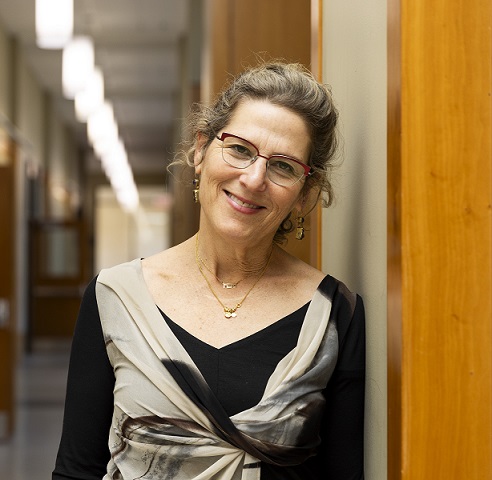
Ellen P. Goodman is Distinguished Professor at Rutgers Law School, where she has also served as Assoc. Dean for Strategic Initiatives. She is currently on leave, serving as Senior Advisor for Algorithmic Justice at NTIA, U.S. Department of Commerce. At Rutgers, she co-directs and co-founded the Rutgers Institute for Information Policy & Law (RIIPL) and was until recently a Senior Fellow at the German Marshall Fund. Goodman has published widely on media and telecommunications law, smart cities and algorithmic governance, freedom of expression, and advertising law. She served in the Obama Administration as a Distinguished Visiting Scholar with the Federal Communications Commission and has been a visiting scholar at the London School of Economics and the University of Pennsylvania. She has been the recipient of Ford Foundation, Knight Foundation, Democracy Fund, and Geraldine R. Dodge grants for work on public interest journalism, new public media structures, and transparency initiatives. Prior to joining the Rutgers faculty, Goodman was a partner at the law firm of Covington & Burling LLP, where she practiced in the information technology area. She is a graduate of Harvard College and Harvard Law School, clerked for Judge Norma Shapiro on the Eastern District of Pennsylvania, and has three children.
Michael Gottlieb
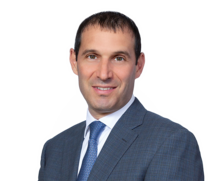
Michael J. Gottlieb is a partner in the Litigation Department, and a member of the Executive Committee at Willkie Farr & Gallagher. He is Chair of the Crisis Management Group, and Co-Chair of the Media & First Amendment Practice Group and the Strategic Motions & Appeals Practice Group. Gottlieb represents clients in enterprise-threatening events, including complex litigation at the trial and appellate level, government investigations and enforcement actions, and multidimensional crises involving multi-front disputes with intense media interest and government nexus. He has successfully led trials, appeals, and investigations on behalf of Fortune 50 and other major multinational companies, financial institutions, technology startups, foreign governments, senior executives, and individuals, while also maintaining a pro bono and public interest practice in which he has obtained damages awards totaling in the hundreds of millions of dollars for his clients. Gottlieb has been recognized by several leading legal and business publications, including being nominated as the American Lawyer’s 2023 Attorney of the Year, and being named by Forbes as one of America’s Top 200 Lawyers (2024), by Lawdragon 500 as one of America’s 500 Leading Lawyers (2024) and one of its 500 Leading Litigators (2024).
Lindsay Green-Barber
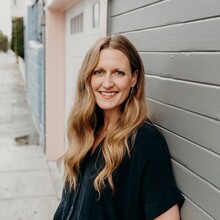
Lindsay Green-Barber is a listener, a teacher, a learner, and a speaker. She is a leader in media and communications impact strategy and measurement. She has worked with media organizations, nonprofits, and funders to develop custom impact frameworks, design strategies for maximizing impact, and conduct research to assess success. Lindsay has been invited to speak at dozens of conferences across the US and internationally about media impact, new media trends, audience and community engagement, and how to build high-impact strategies. She is a firm believer in applied research and is passionate about ensuring equal access to information generated through research processes. Green-Barber founded Impact Architects LLC in 2017. Lindsay earned her Ph.D. in political science from the City University of New York Graduate Center. She is based in Boulder, CO.
Brittany Hailer
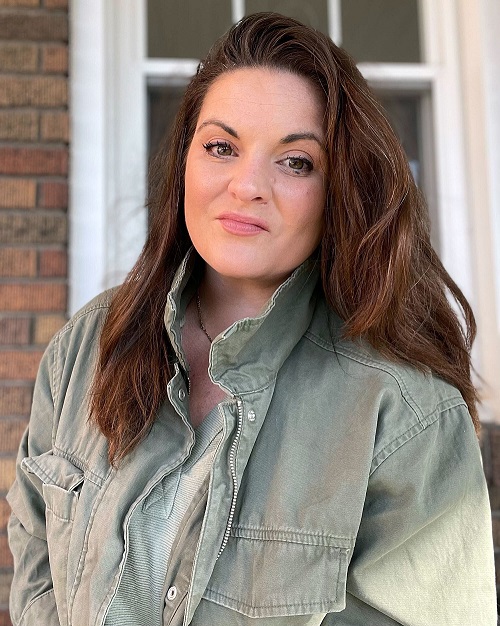
Brittany Hailer is an award-winning investigative journalist and educator based in Cleveland, Ohio. She is a staff writer with The Marshall Project - Cleveland. She is former co-founder and director of the Pittsburgh Institute for Nonprofit Journalism and former Assistant Teaching Professor of Writing at the University of Pittsburgh. Her work has been funded by The Pulitzer Center, Google News Equity Fund and Pittsburgh Media Partnership. Since 2020, Hailer has tracked in-custody deaths at the Allegheny County Jail, some of which were not previously reported to the public. For her investigations into in-custody deaths, Hailer has received national and regional investigation journalism awards including Best Investigation in the 2022 Nonprofit News Awards. Hailer has taught creative writing classes at the Allegheny County Jail and Sojourner House as part of Chatham’s Words Without Walls program and now teaches creative writing and journalism at the University of Pittsburgh. Her work has appeared in Sierra Club Magazine, NPR, Longform, PublicSource, HAD, Booth, and elsewhere.
Lisa Hoppenjans
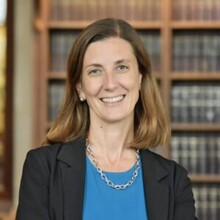
Lisa Hoppenjans is an Associate Professor of Practice and Director of the First Amendment Clinic at the Washington University in St Louis School of Law, where she represents clients in matters advancing and defending freedom of speech, press, and assembly. Hoppenjans has successfully represented clients in a range of First Amendment and media law matters in federal and state court, including civil rights cases asserting the right of access to public fora, challenges to unconstitutional content and viewpoint-based restrictions on speech, and matters asserting rights of access to court records and other public records. She has also defended clients against suits asserting defamation or other speech-based torts. Prior to joining the law school, Lisa was a partner at the law firm of Dowd Bennett LLP, where her practice focused on complex civil litigation, appellate litigation, and internal investigations. Hoppenjans graduated from the Duke University School of Law and received a Master of Arts in Mass Communication from the University of North Carolina. She served as a law clerk to the Hon. Susan H. Black of the U.S. Court of Appeals for the Eleventh Circuit. Prior to her legal career, she was a newspaper reporter for The News & Observer of Raleigh, North Carolina, and the Winston-Salem Journal.
Ian Kalish

Ian Kalish is a clinical supervising attorney at the Reporters Committee for Freedom of the Press and a lecturer at the University of Virginia School of Law, where he teaches in the First Amendment Clinic. His practice includes matters of defamation, government employee speech, right to protest, and access to public records, and he frequently litigates in state and federal court.
Prior to joining the Reporters Committee, Kalish was a lecturing fellow at Duke Law’s First Amendment Clinic. While at Duke, he mentored a team of students that drafted a successful motion for summary judgment in federal court. His students also argued motions in court and drafted several amicus briefs on important issues of free expression. Kalish began his career as a litigation associate at Cahill Gordon & Reindel. In addition to First Amendment matters, he litigated complex antitrust cases and employment arbitrations. Kalish also provided frequent pro-bono family law assistance through Sanctuary for Families.
Kalish earned his J.D. from New York University School of Law in 2017, where he was a staff editor for the NYU Journal of Legislation and Public Policy. He earned a B.A. from Washington University in St. Louis in 2012 and an M.L.S. from Pratt Institute in 2014.
Michael Karanicolas
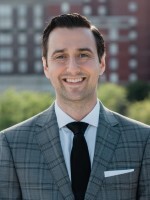
Michael Karanicolas is the Executive Director of the UCLA Institute for Technology Law & Policy and, as of January 1 2025, will be an associate professor and the James S. Palmer Chair in Law and Public Policy at the Schulich School of Law at Dalhousie University. Previously, he was the Wikimedia Fellow at the Yale Information Society Project, where he remains an affiliated fellow. Prior to his academic career, Michael spent a decade as a human rights advocate, where he worked to develop legal frameworks supporting foundational rights for democracy. His research encompasses a number of thematic areas, but generally revolves around the application of human rights standards in an online context. His most recent project, with the Administrative Conference of the United States, involves developing appropriate safeguards for the use of AI in regulatory enforcement. Michael has a B.A. (Hons.) from Queen's University (Dean's List), an LL.B. from the Schulich School of Law at Dalhousie University (Dean's List), and an LL.M. from the University of Toronto.
Jane Kirtley
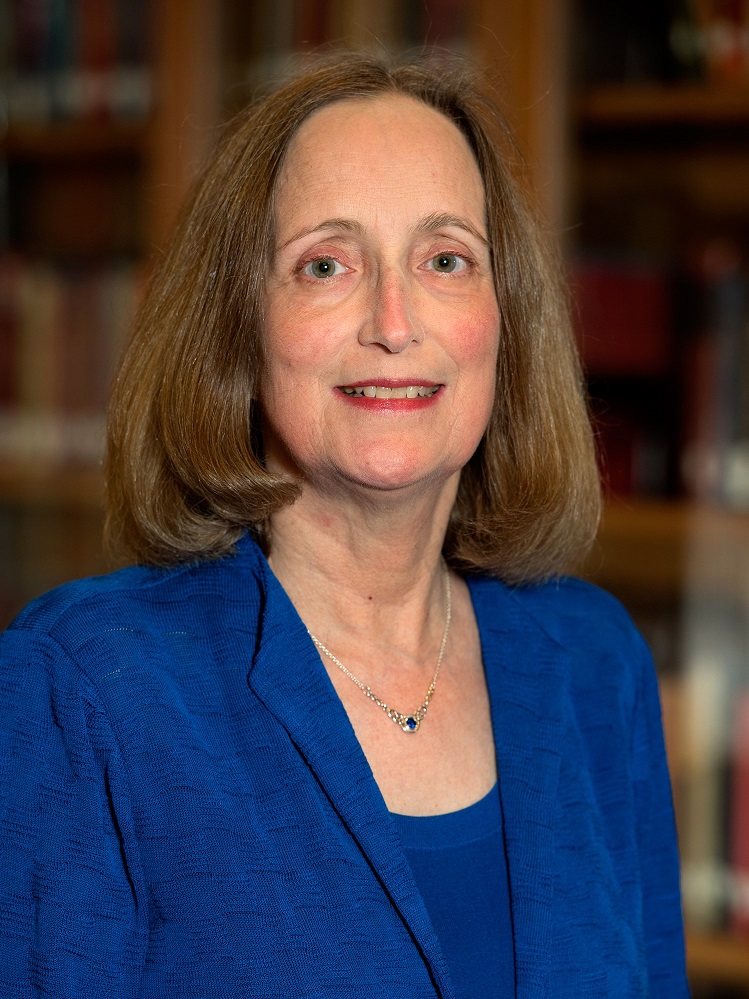
Jane E. Kirtley is the Silha Professor of Media Ethics and Law at the Hubbard School of Journalism and Mass Communication at the University of Minnesota, where she directs The Silha Center for the Study of Media Ethics and Law. Kirtley is also an affiliated faculty member at the University of Minnesota Law School, and has held visiting professorships at Suffolk University and Notre Dame Law schools. She was a Fulbright Scholar teaching U.S. media law and media ethics at the University of Latvia’s Law Faculty in Riga during Spring 2016. Kirtley has written friend-of-the-court briefs in the U.S. Supreme Court, as well as two books, many book chapters, and articles for scholarly journals and for the popular and professional press, including The New York Times, The Conversation, and the Guardian. Kirtley served as Executive Director of The Reporters Committee for Freedom of the Press for 14 years. Before that, she practiced law in New York, Virginia, and Washington, D.C., and was a reporter for newspapers in Indiana and Tennessee. Kirtley’s J.D. is from Vanderbilt University Law School, and her bachelor and master of journalism degrees from Northwestern University’s Medill School of Journalism.
Cameron Kistler
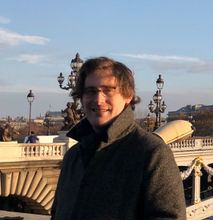
Cameron Kistler is a counsel at Protect Democracy. Before joining Protect Democracy, Cameron was an associate at Gibson, Dunn & Crutcher. He has served as a clerk to the Honorable Edith Brown Clement of the United States Court of Appeals for the Fifth Circuit and the Honorable Lance Africk of the United States District Court for the Eastern District of Louisiana. He received his J.D. from Yale Law School, where he was a Notes Editor of the Yale Law Journal.
Heidi Kitrosser

Heidi Kitrosser is the William W. Gurley Professor of Law at Northwestern Pritzker School of Law. Kitrosser is an expert on the constitutional law of federal government secrecy and on separation of powers and free speech law more broadly. She has written, spoken, and consulted widely on these topics. Her book, Reclaiming Accountability: Transparency, Executive Power, and the U.S. Constitution was awarded the 2014 IIT Chicago-Kent College of Law / Roy C. Palmer Civil Liberties Prize. Kitrosser’s articles have appeared in many venues, including Supreme Court Review, Georgetown Law Journal, UCLA Law Review, Minnesota Law Review, and Constitutional Commentary. In 2017, she was awarded a Guggenheim fellowship. Kitrosser is on the steering committee of the Free Expression Legal Network (FELN), a new network of law school clinics, academics, and practitioners spearheaded by Yale’s Media Freedom & Information Access Clinic and the Reporter’s Committee for Freedom of the Press, which seeks to promote and protect free speech, free press, and the flow of information.
Robert Kuehn
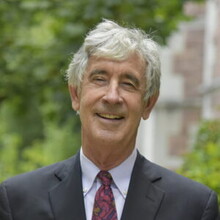
Robert R. Kuehn is a Professor of Law at Washington University in St Louis School of Law. He focuses his teaching on clinical legal education and professional responsibility and has published extensively on such topics as legal education, academic freedom, access to legal representation, environmental justice, environmental enforcement, and professional responsibility. He is the former president of the Clinical Legal Education Association (CLEA) and the current vice president of the Center for the Study of Applied Legal Education (CSALE), which publishes tri-annual surveys of law clinics and field placement programs, courses, and instructors. Before becoming a law professor, he clerked for the Hon. James C. Hill, U.S. Court of Appeals for the Eleventh Circuit, and the Hon. Sidney M. Aronovitz, U.S. District Court for the Southern District of Florida. He then practiced law in Washington, D.C. in the Environmental Enforcement Section of the Environment and Natural Resources Division at the U.S. Department of Justice.
Thomas Leatherbury

Tom Leatherbury is a Clinical Professor of Law and Director of the First Amendment Clinic at Southern Methodist University Dedman School of Law. He is a trial and appellate lawyer with forty years of experience in state and federal court. During that time, he has worked on commercial, tort, intellectual property and health care cases, as well as class actions. Leatherbury has made approximately 40 appellate and countless trial court arguments, and has tried or handled the appellate-related portions of close to 20 jury trials. Leatherbury has regularly represented traditional and digital publishers and broadcasters in all aspects of media litigation throughout his career, including libel, privacy and other torts, reporter’s privilege, newsgathering and access, misappropriation, and breach of contract actions. Leatherbury is also deeply committed to training young lawyers in Continuing Legal Education courses and to an extensive range of pro bono work, from family to immigration to constitutional law. Among many other honors, he was named a fellow in the American Academy of Appellate Lawyers, was presented with the Dallas Bar Foundation Justinian Award, and was awarded a Presidential Citation from the State Bar of Texas for his commitment to helping its diversity and inclusion efforts and the Texas Access to Justice Commission’s Harry M. Reasoner Justice for All award.
Lyrissa Lidsky
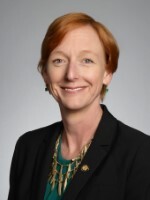
Lyrissa Lidsky is the Raymond & Miriam Ehrlich Chair in U.S. Constitutional Law at Florida Law. The focus of her research and teaching is the intersection of Tort Law and the First Amendment, with an emphasis on free speech issues in social media. She is co-reporter, with Dean Robert Post, of the Restatement (Third) of Defamation and Privacy and is the new author of Sack on Defamation. Her wo rks have been cited by a number of state supreme courts, federal courts, and the highest courts of Canada and Hong Kong. Lidsky was Dean of the University of Missouri School of Law from 2017-2022. Prior to that, Lidsky held the Stephen C. O’Connell Chair in Law at UF Law and served in various associate dean positions. Before becoming a law professor, Lidsky served as a clerk for the Honorable Joseph T. Sneed of the United States Court of Appeals for the Ninth Circuit in San Francisco, Calif. Lidsky received her law degree from the University of Texas School of Law with high honors. Before law school, she was a Fulbright Scholar at Cambridge University in England. She received her bachelor’s degree, summa cum laude, from Texas A&M University.
Jonathan Manes
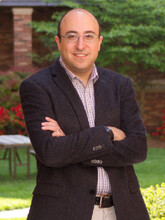
Jonathan Manes is an attorney at the MacArthur Justice Center’s Illinois Office and a member of the teaching faculty at Northwestern Pritzker School of Law, where he co-directs a practicum focused on media law and government transparency. His litigation and advocacy work focuses on government accountability and civil rights violations that flow from government surveillance, police technologies, and national security policies. He previously led MJC’s work on voting rights. Manes has published scholarly work on the conflicts between secrecy and democratic accountability, focusing on surveillance technologies and national security. His academic writing has appeared in the Georgetown Law Journal, Berkeley Technology Law Journal, and Yale Law Journal Forum. Manes is a co-founder and member of the steering committee of the Free Expression Legal Network. He previously served on the board of the New York Civil Liberties Union. He clerked for Justice Morris J. Fish of the Supreme Court of Canada. He graduated from Yale Law School, the London School of Economics.
Adam Marshall
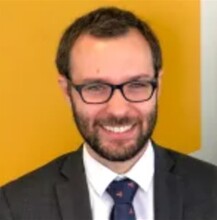
Adam A. Marshall is a senior staff attorney at the Reporters Committee for Freedom of the Press. His work includes litigation in federal and state courts and training journalists on government transparency. Marshall is the co-author of chapters in Troubling Transparency (Columbia University Press, 2018), and COVID-19: The Legal Challenges (Carolina University Press, 2021). His other writings include Access to Public Records and the Role of the News Media in Providing Information About COVID-19 (Journal of National Security Law & Policy, 2020) and Prioritizing the Public's Right to Know in a Pandemic (Wake Forest Journal of Law & Policy, 2021). Marshall is a recipient of the President’s Volunteer Service Award and the GW Law Pro Bono Service Recognition Award. In 2017, he was named to the Forbes “30 Under 30: Media” list for his work promoting government transparency, including the development of the FOIA Wiki. Marshall graduated from The George Washington University Law School with high honors and as a member of the Order of the Coif. Before attending law school, he received a bachelor's degree from Kalamazoo College and studied abroad at the London School of Economics.
Stephen Stich Match
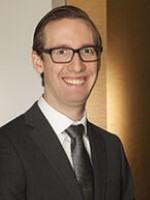
Stephen Stich Match is an attorney in the transparency practice at Loevy & Loevy. He represents clients in government accountability matters with an emphasis on the Freedom of Information Act. Before joining Loevy & Loevy, Stephen worked as a Clinical Lecturer at the Yale Law School Media Freedom & Information Access Clinic. There he taught and litigated cases under FOIA, states’ public record laws, the First Amendment (both free speech and the right of access to courts), defamation, and related matters. His successes include forcing the release of records showing state jails recording and listening to privileged telephone calls between inmates and their lawyers, and hundreds of incident reports documenting inmates’ deaths. Before that, Stephen worked as a litigator at Foley Hoag and a two-year law clerk for Justice Peter Rubin of the Massachusetts Appeals Court.
Steven Monacelli
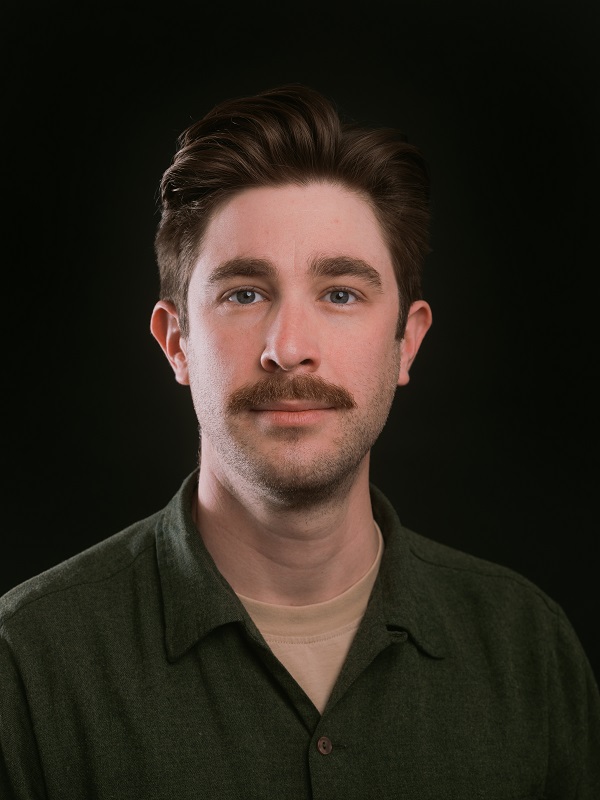
Steven Monacelli is a freelance investigative journalist in Dallas. He serves as the Special Investigative Correspondent for the Texas Observer. His reporting has been featured in Rolling Stone, The Daily Beast, Neiman Lab, WIRED, Texas Monthly, Dallas Observer, Dallas Weekly, and more. He is the publisher of Protean Magazine, a nonprofit literary publication.
Michael Morisy

Michael Morisy is co-founder and Chief Executive Officer of MuckRock. He has twice served on the federal FOIA Advisory Committee, as well as served on the boards of the National Freedom of Information Coalition and American Society of Access Professionals. Through his work at MuckRock, he has helped file over 140,000 public records and FOIA requests at all levels, while also helping guide the development of critical journalism and transparency tools such as FOIA Machine, DocumentCloud and oTranscribe. He was previously an editor at the Boston Globe.
Heather Murray

Heather E. Murray is the Managing Attorney of the Cornell Law School First Amendment Clinic’s Local Journalism Project. In addition to co-teaching the Clinic’s seminar on free speech and freedom of the press, she manages all aspects of the Cornell Local Journalism Project. She previously was a litigation associate at two international law firms and during her time there received a 2018 Law360 Distinguished Legal Writing Award from the Burton Foundation. Prior to her legal career, she worked as a journalist at local newspapers in New York. She is a member of the advisory committee of ProJourn, a pro bono initiative for journalists that is housed at the Reporters Committee for Freedom of the Press. She also serves as chair of the board of directors of Queens-based child welfare agency Forestdale, Inc.
Clare Norins

Clare R. Norins is an Associate Clinical Professor at the University of Georgia School of Law and the Director of the School of Law’s First Amendment Clinic, which represents clients in federal and state court on a range of First Amendment and media law issues. Representative matters include challenges to jail censorship, social media blocking by government officials, retaliatory arrest, defending the right to record, opposing unconstitutional permit requirements, and defamation defense. In 2021, Norins was a co-recipient of the national Clinical Legal Education Association’s award for Excellence in a Public Interest Case in recognition of collaborative advocacy on behalf of noncitizens retaliated against for speaking out about medical abuse they experienced in a Georgia detention center. Norins’ scholarship has been published in the University of Pennsylvania Journal of Constitutional Law and the George Mason University Civil Rights Law Journal. Previously, Norins served as assistant director of the UGA Equal Opportunity Office; was an assistant attorney general in the Civil Rights Bureau of the New York State Office of the Attorney General; and litigated plaintiffs-side police misconduct and employment discrimination cases as an associate with Beldock, Levine & Hoffman.
Michael Ouimette

Michael Ouimette is Chief Investment Officer at the American Journalism Project. As chief investment officer, Michael oversees the programmatic work of the American Journalism Project, including our local philanthropy partnerships, startups and growth investments. Michael previously led the domestic direct-to-consumer businesses at VICE Media and spearheaded efforts to diversify revenue streams and content formats by launching VICE’s first subscription product in the United States and managing its experiential business. Prior to that role, he led strategy and operations for VICE’s digital division, driving efforts to grow audiences and profitability among their collection of digital brands. Michael is based in New York and serves on the board of Free Press Indiana, Signal Ohio, The Beacon and Columbia Daily Spectator.
Cathy O’Neil
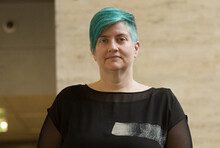
Cathy O’Neil is a Fellow with the Science, Technology, and Public Policy Program at the Belfer Center for Science and International Affairs at Harvard’s Kennedy School. O’Neil earned a Ph.D. in math from Harvard and worked as a math professor at Barnard College before switching over to the private sector, working as a quant for the hedge fund D.E. Shaw and as a data scientist in the New York start-up scene. She is a regular contributor to Bloomberg Opinion and in 2016 wrote the book Weapons of Math Destruction: How Big Data Increases Inequality and Threatens Democracy. She is the CEO of ORCAA, an algorithmic auditing company, and a member of the Public Interest Tech Lab at the Harvard Kennedy School. Her latest book, The Shame Machine: Who Profits in the New Age of Humiliation, came out in March 2022.
Sunoo Park
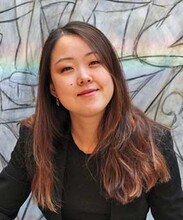
Sunoo Park is an Assistant Professor of Computer Science at NYU's Courant Institute of Mathematical Sciences and Affiliated Interdisciplinary Faculty at the NYU School of Law. Her research is in technology law and policy, with particular interest in the security, privacy, and transparency of digital technologies. In computer science, she does research in cryptography and computer security. Professor Park received her J.D. at Harvard Law School, her Ph.D. in computer science at the Massachusetts Institute of Technology (MIT), and her B.A. in computer science at the University of Cambridge. Her past academic affiliations include the MIT Internet Policy Research Initiative and the Cryptography and Information Security Group at MIT (as a Ph.D. student), the MIT Media Lab's Digital Currency Initiative (as a Ph.D. student and postdoctoral researcher), the Berkman-Klein Center for Internet & Society at Harvard University (as a fellow and affiliate), Cornell Tech's Digital Life Initiative (as a postdoctoral fellow), and Columbia University and Columbia Law School (as a postdoctoral fellow).
Tobin Raju
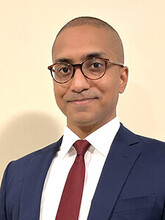
Tobin Raju is a Clinical Lecturer in Law at Yale Law School and an attorney with the Media Freedom & Information Access Clinic. His work with the clinic includes defending and advancing the First Amendment rights of free expression and the press and advocating for increased government transparency through litigation and policy efforts. He also supervises the clinic’s student attorneys. From 2017 to 2021, Tobin was an associate with the law firm Cahill, Gordon & Reindel LLP in New York, where he practiced First Amendment and media law and represented media organizations and reporters. He previously served as the Stanton First Amendment Fellow for the First Amendment Clinic at the Washington University in St. Louis School of Law.
Wadie Said
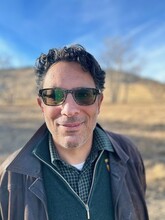
Wadie Said is Professor of Law and Dean’s Faculty Fellow at the University of Colorado School of Law. Previously, he was the Miles and Ann Loadholt Professor of Law at the University of South Carolina School of Law, as well as an assistant federal public defender. A member of the American Law Insitute, Professor Said teaches courses in Criminal Law and Procedure and Human Rights, and is the author of Crimes of Terror: The Legal and Political Implications of Federal Terrorism Prosecutions (Oxford University Press), as well as many other works dealing with the intersection of criminal law, international law, immigration law, and foreign policy.
David Schulz

David A. Schulz is Director of the Media Freedom & Information Access Clinic, where he serves as the Floyd Abrams Clinical Lecturer and a Senior Research Scholar, and is Senior Counsel to the media and entertainment law group at Ballard Spahr LLP where his practice is concentrated in media law, First Amendment, and intellectual property litigation. Over the past four decades he has handled a wide variety of lawsuits and appeals in federal and state courts located throughout the United States, including precedent-setting cases on the public’s right of access to government proceedings and information, and the scope of constitutional protection for newsgathering. Schulz is a co-author of the leading treatise on newsgathering, Newsgathering and the Law, 5th ed and the author of numerous scholarly articles. He currently serves on the New York Committee on Open Government, the State agency responsible for overseeing the open meetings, freedom of information and personal privacy laws, and is a General Trustee of Knox College, in Galesburg, Illinois. He is a graduate of Knox College, Yale University, and Yale Law School.
Susan Seager
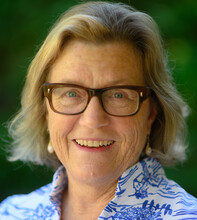
Susan Seager is an Adjunct Professor of Law and head of the Press Freedom and Transparency practice at the Intellectual Property, Arts and Technology Clinic. Seager is a former journalist and author of the 2016 article “Donald J. Trump Is a Libel Bully But Also a Libel Loser" detailing Trump's history of suing the press and critics before his election as president. Seager is a veteran media law litigator at Davis Wright Tremaine in Los Angeles, defending journalists from lawsuits and unsealing court records and government records. In addition to teaching at UCI, she teaches media law and First Amendment law at the University of Southern California, and in 2017 was a First Amendment columnist for TheWrap. From 2007 until 2016, she worked as a vice president in the litigation department of Fox Entertainment Group, where she worked for National Geographic Channel, Fox Television Stations, FX, and Fox Sports. Before attending law school, she worked as a journalist for the LA Weekly, LA Daily Journal, Los Angeles Herald Examiner, and United Press International. She was awarded the Freedom of Information Award in 2004 by the Los Angeles Chapter of the Society for Professional Journalists. She earned her law degree from Yale Law School in 1999.
Andrew Sellars
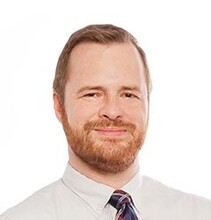
Andrew Sellars is a Clinical Associate Professor of Law at Boston University School of Law and a Partner at Albert Sellars LLP, a public interest technology and media law firm. At BU Law he is the outgoing Executive Director of the BU/MIT Student Innovations Law Clinic, a free legal service for undergraduate and graduate students at MIT and BU. In the clinic, BU Law students counsel clients on laws that affect their research, advocacy, and creative projects, including intellectual property, law, data privacy, cybersecurity, and business regulation. Sellars has overseen the legal representation of hundreds of student clients through his work in the clinic, representing technology critics, computer security researchers, public interest advocates, creators of innovative new technologies, and student journalists. His scholarship focuses on application of intellectual property and computer access laws to technology research and journalism, including permissionless investigation of technology systems. Before joining BU, Sellars was the Corydon B. Dunham First Amendment Fellow at Harvard University’s Berkman Klein Center for Internet & Society. There, he worked in Harvard Law School’s Cyberlaw Clinic and the Digital Media Law Project.
Max Siegelbaum
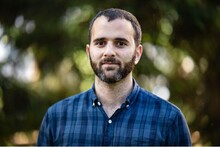
Max Siegelbaum is the Special Projects Editor and co-founder of Documented, an independent, non-profit newsroom dedicated to reporting with and for immigrant communities in New York City. Siegelbaum began his career in post-revolution Egypt, reporting on politics and culture. He is a graduate of the Stabile Center for Investigative Journalism at Columbia University and has written for local newspapers in Denver and Pittsburgh, The Guardian, Foreign Policy, and STAT, among others. His reporting for Documented led to the divestment of millions of public dollars from private prisons and contributed to policy changes in New York State. He has won awards from the Deadline Club, the Edward R. Murrow awards and was nominated for a Livingston Award.
Josh Stearns

Josh Stearns is the Senior Director of the Public Square Program at Democracy Fund. Josh leads the foundation’s efforts to support transformative leaders who are rebuilding local news, advancing more equitable journalism, defending civil rights online, and holding social media platforms accountable for their impact on our democracy and society. Josh joined the Democracy Fund from the Geraldine R. Dodge Foundation, where he served as the Director of Journalism and Sustainability and worked to support and expand community engagement in local news and develop new business models for journalism.
Josh is a co-founder of the Local News Lab, First Draft News and the Freedom of the Press Foundation and currently on the board of the Democratizing Philanthropy Project. His articles have appeared in the Chronicle of Philanthropy, Stanford Social Innovation Review, Guardian, Columbia Journalism Review, BuzzFeed, PBS MediaShift, and Orion Magazine. He has served as a visiting scholar in the Journalism and Communication Departments at the University of Massachusetts, Amherst and has taught at the CUNY Graduate School of Journalism. He has a BA in writing from St. Lawrence University and an MA in American Studies from the University of Massachusetts.
Bobak Talebian
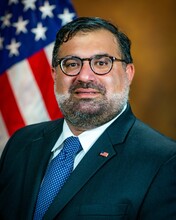
Bobak Talebian is the Director of the Office of Information Policy (OIP) of the United States Department of Justice. OIP is responsible for developing policy guidance for Executive Branch agencies on the Freedom of Information Act (FOIA), providing legal counsel and training to agency personnel on the procedural and substantive aspects of the Act, and for overseeing agency compliance with the law. OIP also manages the Department of Justice's obligations under the FOIA. Before becoming Director, Talebian served as Acting Director and Acting Chief of Staff of OIP. Prior to these roles, Mr. Talebian served as the first Chief of OIP's FOIA Compliance Staff. During his tenure as Chief of OIP’s FOIA Compliance Staff, Mr. Talebian’s team led a number of government-wide initiatives that improved agencies’ FOIA adminstration, including the development of policy guidance, new reporting guidelines, FOIA training and assessment resources, and the launch of the National FOIA Portal on FOIA.gov. Talebian is a graduate of Kenyon College and the University of Tennessee College of Law where he served on Law Review.
Ariana Tobin
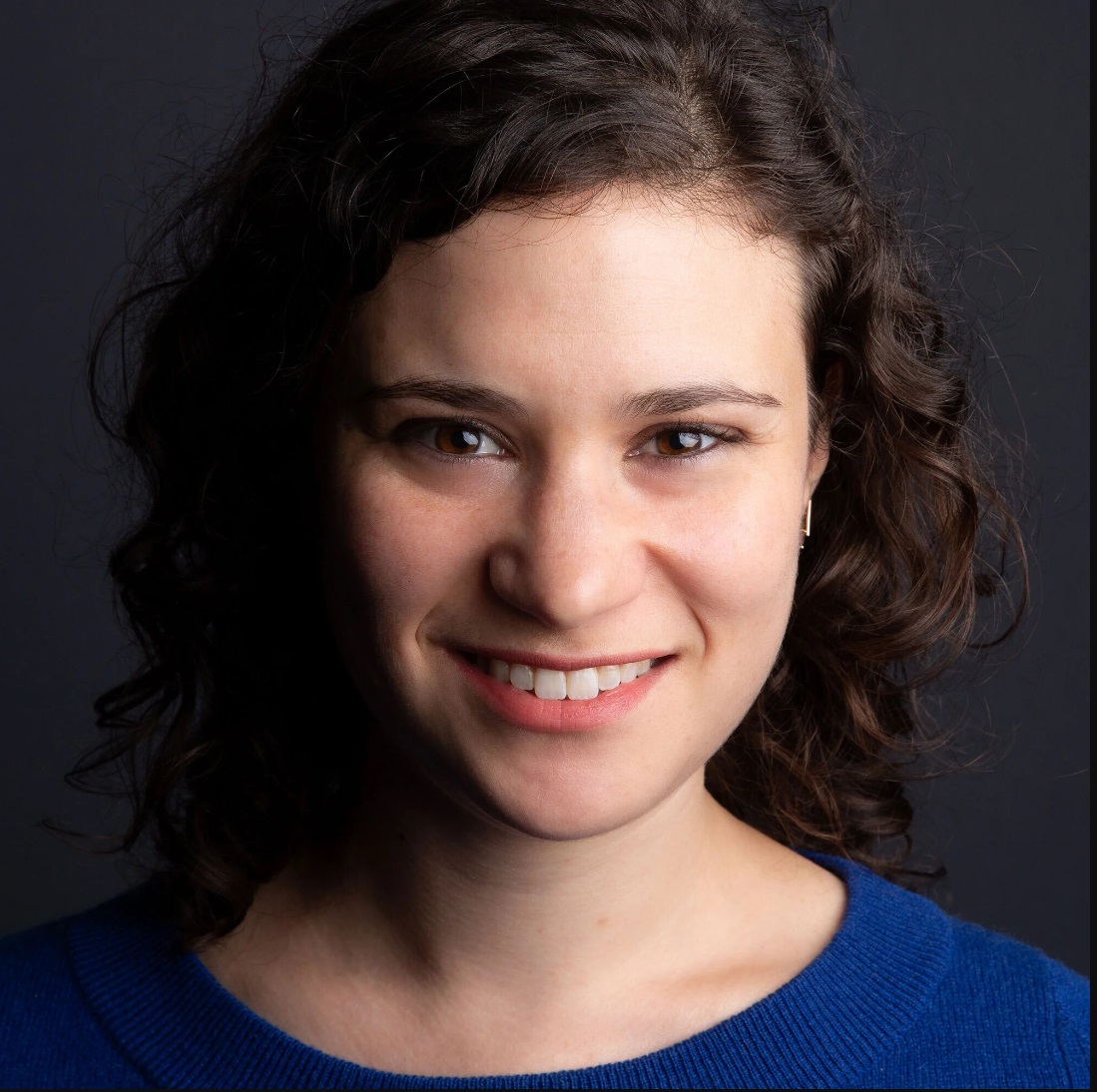
Ariana Tobin is the crowdsourcing and engagement team editor at ProPublica, guiding community-sourced investigations. Her team works on national and local accountability stories, on topics ranging from Idaho's crumbling public school infrastructure to health insurers withholding information patients are entitled to by law. As an engagement reporter, she focused on technology and problematic labor practices, from Facebook-fueled discriminatory ads, large-scale layoffs of older workers at IBM and misclassified customer service representatives in the gig economy. Her reporting has contributed to three consecutive Gerald Loeb awards, two Edward R. Murrow awards, a SABEW Best in Business award and a Barlett & Steele bronze award. She previously worked as an engagement editor at The Guardian, as a digital producer for APM’s Marketplace, and as a podcast producer at WNYC. There, she helped launch the multi-platform Bored and Brilliant and Infomagical series, which analyzed information on nearly 30,000 participants’ smartphone habits and earned her an Online News Association MJ Bear Fellowship. Her writing has appeared in outlets including The New Republic, The New York Times, the St. Louis Beacon and Bustle. She studied on a Fulbright grant in Minsk, Belarus. She also leads trainings for the Balkans Investigative Reporting Network’s Engaged Citizens Reporting program.
Suresh Venkatasubramanian
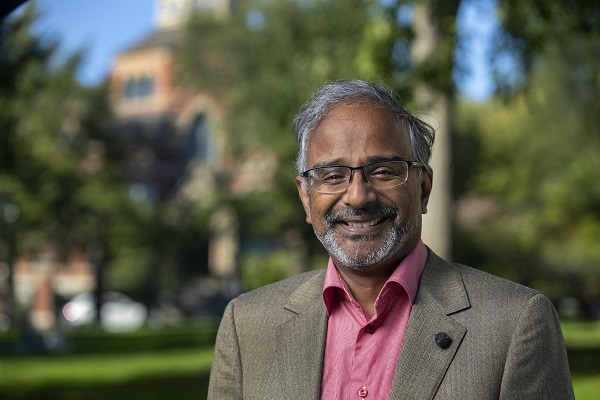
Suresh Venkatasubramanian directs the Center for Technological Responsibility, Reimagination, and Redesign (CNTR) with the Data Science Institute at Brown University, and is a Professor of Computer Science and Data Science. Suresh's background is as a computer scientist and his current research interests lie in algorithmic fairness, and more generally the impact of automated decision-making systems in society. Suresh recently finished a stint in the Biden-Harris administration, where he served as Assistant Director for Science and Justice in the White House Office of Science and Technology Policy. In that capacity, he helped co-author the Blueprint for an AI Bill of Rights. Prior to Brown University, Suresh was the John and Marva Warnock Assistant Professor at the University of Utah. He has received a CAREER award from the NSF for his work in the geometry of probability, a test-of-time award at ICDE 2017 for his work in privacy, and a KAIS Journal award for his work on auditing black-box models. His research on algorithmic fairness has received press coverage across the globe, including in NPR’s Science Friday, NBC, CNN, and other media outlets. He was recently named by Fast Company to their AI20 list of thinkers shaping the world of generative AI.
Katie Waldo
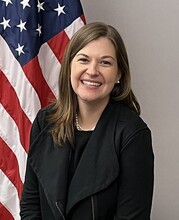
Katie Waldo is the Managing Director and Co-Founder of We The Action, a tech nonprofit dedicated to empowering a community of over 50,000 lawyers to volunteer their skills with leading nonprofits. Previously, Katie served as the White House Trip Manager, traveling the world with President Obama. During the 2008 Obama campaign, she worked as an operations director in several battleground states. An active volunteer in Washington, D.C., Katie has called the city home since 2008, where she lives with her husband and their three-year-old daughter. She holds a BA in Journalism from Creighton University and volunteered in El Salvador and the Dominican Republic.
Marlena Wisniak
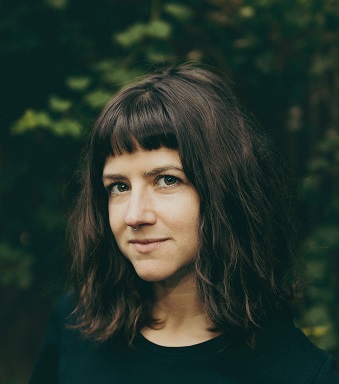
Marlena Wisniak leads policy and advocacy on digital rights at the European Center for Non-Profit Law (ECNL), with a focus on algorithmic systems. A lawyer, Marlena has over a decade of experience working globally across sectors at the intersection of technology and human rights. She oversaw content governance on Twitter's legal team until 2022 and had previously led the civil society and academic portfolios at the Partnership on AI. Marlena also worked as a consultant with organizations including Amnesty International, the Danish Institute for Human Rights, the Investor Alliance for Human Rights, Oxfam America and the Inter-American Court of Human Rights, among others. Admitted to the Geneva (Swiss) bar, Marlena holds a Master’s of Law degree (LL.M) from Stanford Law School as well as a law (J.D.) and Bachelor’s degree in International Relations from the University of Geneva.
Ethan Zuckerman
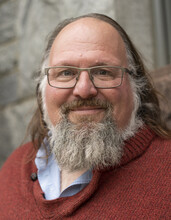
Ethan Zuckerman is an Associate Professor of Public Policy, Communication, and Information at the University of Massachusetts Amherst, as well as director of UMass’s Initiative for Digital Public Infrastructure, focused on reimagining the internet as a tool for civic engagement. Previously, Zuckerman served as director of the Center for Civic Media at MIT and associate professor of practice in media arts and sciences at the MIT Media Lab. In 2005, Zuckerman co-founded Global Voices, which showcases news and opinions from citizen media in more than 150 nations and 30 languages. Through Global Voices, and as a researcher and fellow at Harvard’s Berkman Klein Center for Internet and Society, Zuckerman has led efforts to promote freedom of expression and fight censorship online. In 1999, Zuckerman founded Geekcorps, an international, nonprofit, volunteer organization that sent IT specialists to work on projects in developing nations. Previously, he helped found Tripod.com, one of the web's first “personal publishing” sites. In addition to authoring numerous academic articles, Zuckerman is a frequent contributor to media outlets such as The Atlantic, Wired, and CNN. He received his bachelor’s degree from Williams College and, as a Fulbright scholar, studied at the University of Ghana at Legon.
